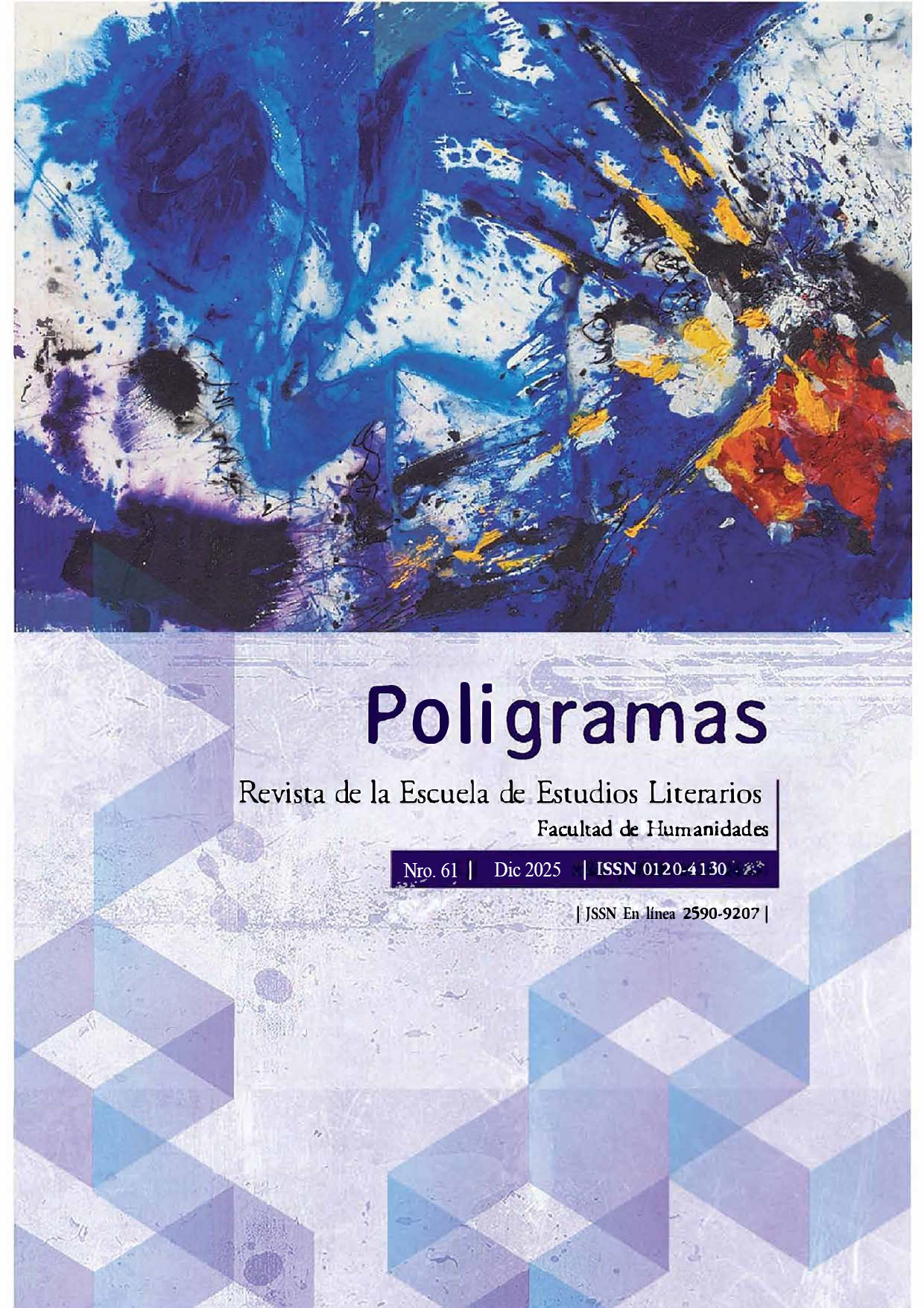Manifestations of the contemporary chronicle's subjectivity and the customized body in “Yo fui una freak (pero me operé)” by Gabriela Wiener
Main Article Content
This article develops an analysis of the autobiographical chronicle “Yo fui una freak (pero me operé)”, by Gabriela Wiener, based on studies on literary journalism and the philosophy of the body in the age of technoscience. To this end, the text is contextualized in terms of the characteristic elements of the chronicle, the gonzo style adopted by the author, and the autobiographical turn that has taken place in contemporary literary journalism. With this, it is identified that the narrative subjectivity present in her work is part of a trend that takes resources from autobiographical writings to enunciate freak issues, whose representation is transgressive in relation to traditional journalism. Likewise, the notion of the «customized body» is proposed to examine the way in which Wiener sheds light on the bodily dilemmas of our time and lets us see the relationship between body and chronicle.
- autobiographical chronicle
- contemporary literary journalism
- customized body
- Gabriela Wiener
- narrative subjectivity
Amar Sánchez, Ana María. El relato de los hechos. Rodolfo Walsh: Testimonio y escritura. Beatriz Viterbo Editora, 1992.
Baudrillard, Jean. La transparencia del mal. Ensayo sobre los fenómenos extremos. Traducido por Joaquín Jordá, Anagrama, 1997.
Cairati, Elisa. Periodismo narrativo en Perú: Trayectorias híbridas de la no ficción en el siglo XXI. 2014. Università degli Studi di Milano, Tesis doctoral. AIR - Archivio istituzionale della Ricerca. https://hdl.handle.net/2434/354710.
Calvi, Pablo. “The return of Gonzo through the female body: Gabriela Wiener and the journalist as a sexual vortex”. Fear and Loathing Worldwide: Gonzo Journalism Beyond Hunter S. Thompson, editado por Robert Alexander y Christine Isager, Bloomsbury Academic, 2018, pp. 205-221.
Caparrós, Martín. Lacrónica. Planeta, 2016.
“Custom”. Merriam-Webster Dictionary, Merriam-Webster, 2024, https://www.merriam-webster.com/dictionary/custom.
Eagleton, Terry. “It is not quite true that I have a body, and not quite true that I am one either”. London Review of Books, vol. 15, no. 10, 27 de mayo de 1993. https://www.lrb.co.uk/the-paper/v15/n10.
Escario, Inés. El periodismo kamikaze de Gabriela Wiener: subjetividad, honestidad y espectáculo. 2013. Universidad de Zaragoza, Trabajo de grado. Repositorio ZAGUAN. https://zaguan.unizar.es/record/12384?ln=en.
Esposito, Roberto. Personas, cosas, cuerpos. Traducido por Albert Jiménez, Editorial Trotta, 2017.
Haraway, Donna. Testigo_Modesto@Segundo_Milenio.HombreHembra©_ Conoce_Oncorata®: feminismo y tecnociencia. Traducido por Emma Song, Rara Avis Editorial, 2021.
Idez, Ariel. “La crónica en la encrucijada de la subjetividad: periodismo, autobiografía y literatura”. III Congreso Internacional Cuestiones Críticas, CETyCLI, 24-26 de abril de 2013, Universidad Nacional de Rosario, Rosario. Ponencia. https://www.cetycli.org/trabajos/idez_arielcc.pdf.
Jaramillo, Darío. “Collage sobre la crónica latinoamericana del siglo XXI”. Antología de crónica latinoamericana actual, Alfaguara, 2012, pp. 11-47.
Le Breton, David. Adiós al cuerpo. Traducido por Ociel Flores, La Cifra Editorial, 2007.
Le Breton, David. El tatuaje o la firma del yo. Traducido por Albé, Casimiro Libros, 2013.
Le Breton, David. La sociología del cuerpo. Traducido por Hugo Castignani, Ediciones Siruela, 2018.
Osorio, Óscar. Cuentos sin ficción [Manuscrito en preparación]. 2024. Universidad del Valle, Cali.
Poblete, Patricia. “Las narrativas del Yo en la crónica contemporánea”. Anales de literatura hispanoamericana, vol. 43, 2014, pp. 241-254. Scopus, https://doi.org/10.5209/rev_ALHI.2014.v43.47122.
Rotker, Susana. La invención de la crónica. Ediciones Letra Buena, 1992.
Sibilia, Paula. “¿Cómo ser un cuerpo contemporáneo?”. Cuadernos del Inadi, no. 2, agosto de 2010, pp. 1-6.
Wiener, Gabriela. Nueve lunas. Viaje alucinado a la maternidad. Editorial Marea, 2012.
Wiener, Gabriela. Sexografías. Seix Barral, 2015.
Wiener, Gabriela. “El cuerpo es una historia de amor que también acaba”. Vice, 25 de marzo de 2020, https://www.vice.com/es/article/el-cuerpo-es-una-historia-de-amor-que-tambien-acaba/
Downloads

This work is licensed under a Creative Commons Attribution-NonCommercial-ShareAlike 4.0 International License.





